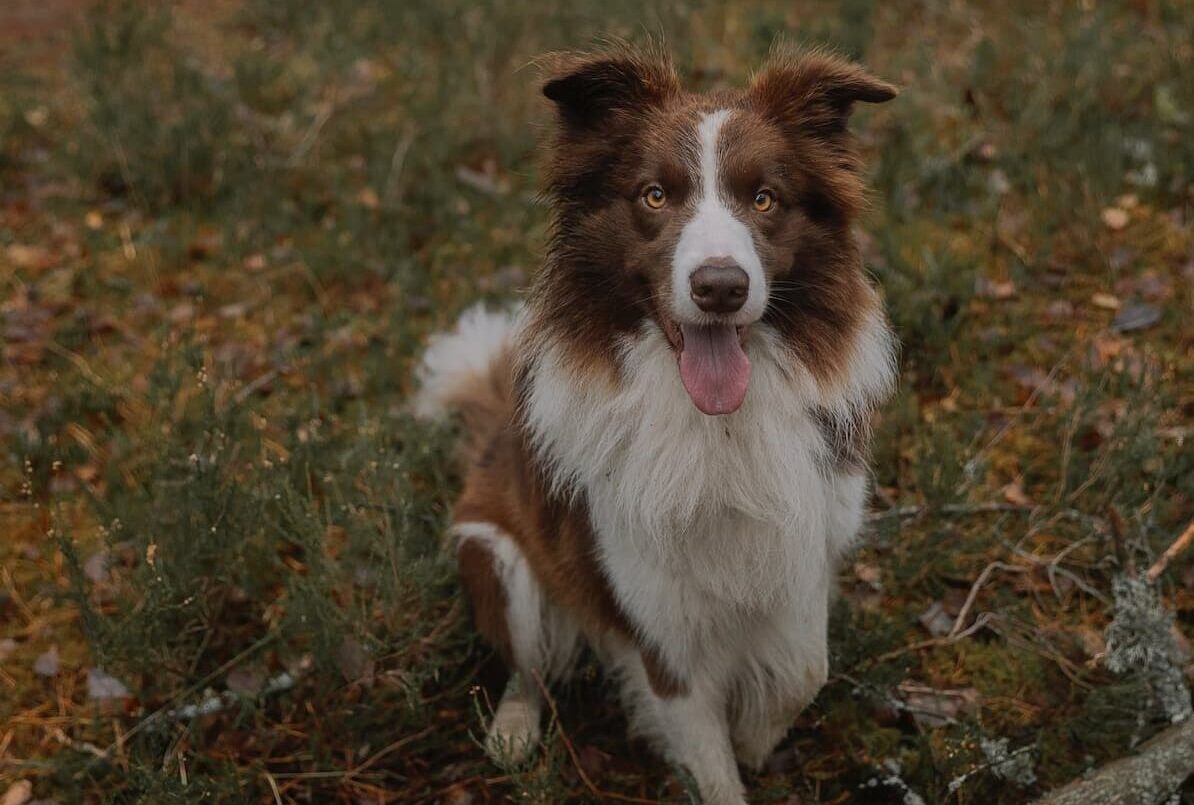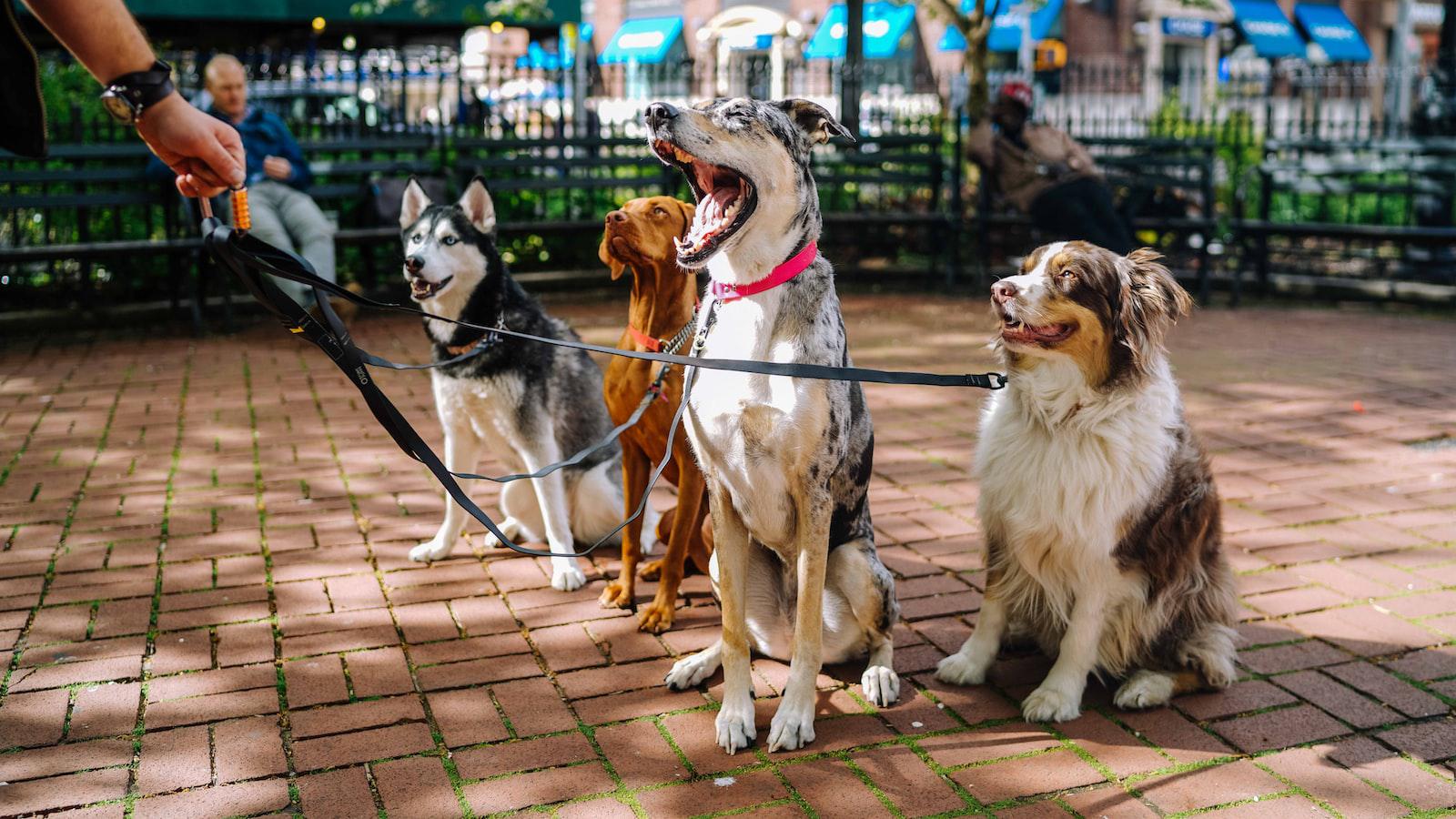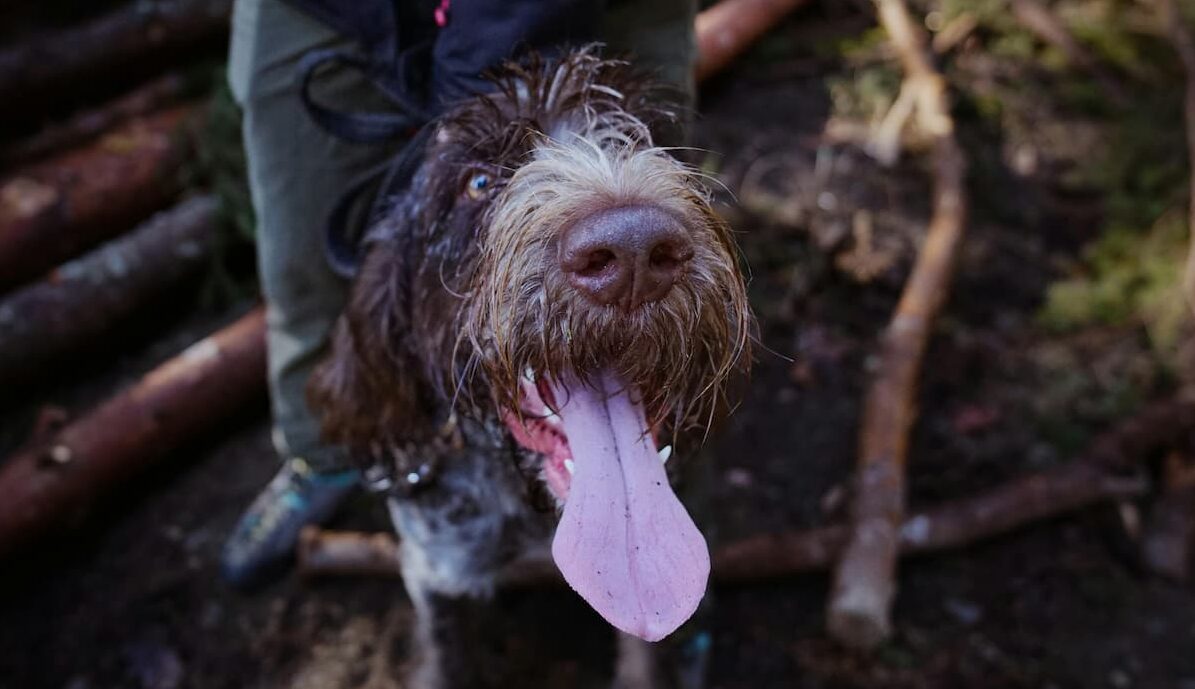You know that feeling when you’re hanging out with your furry best friend, and suddenly, you notice their little tongue hanging out and their breath seems to be coming at a ridiculously fast pace?
Yeah, we’ve all been there.
But have you ever wondered why dogs breathe so fast?
The article will answer your question.
Unveiling the Reasons Behind Their Rapid Breathing
Dogs have always been known for their boundless energy and lively demeanor.
But have you ever noticed how fast they breathe, panting away as if they just completed a marathon?
It may seem puzzling at first, but there are actually several reasons behind their rapid breathing:
Understanding the Physical Factors
Heat is one of the main culprits behind a dog’s rapid breathing.
Just like us, dogs can also overheat, especially during hot summer days or in environments with poor ventilation.
When their body temperature rises, dogs pant to release excess heat and cool down.
Panting allows them to evaporate moisture from their tongue and the lining of their lungs, effectively regulating their body temperature.
So, if you see your dog panting heavily, it’s their way of telling you that they need to cool off!
Another reason why dogs may breathe fast is exercise.
Just like humans, dogs get their blood pumping when they engage in physical activity.
Whether it’s a game of fetch or a long walk, exercising causes dogs to breathe faster.
This accelerated breathing helps bring more oxygen into their bodies, allowing their muscles to work efficiently.
So, the next time you and your pup go for a run, don’t be surprised if they start panting heavily – it’s just their body’s way of keeping up with the increased demand for oxygen.
Temperature regulation: One of the primary reasons why dogs breathe rapidly is to regulate their body temperature.
Unlike humans, dogs don’t have sweat glands all over their bodies.
Instead, they rely on panting, which helps them release excess heat.
As they inhale and exhale rapidly, air passes over their moist tongue and the lining of their airways, causing evaporation and cooling.
So, the next time you spot your pooch panting on a hot summer day, remember that it’s their way of keeping cool and preventing overheating.
Exercise and excitement: Dogs are naturally active creatures, and just like humans, they need regular exercise to stay fit and healthy.
When dogs engage in physical activities like playing fetch, jogging, or even going for a walk, their respiratory rate increases.
Panting facilitates oxygen intake, helping their muscles receive the required amount of oxygen during strenuous activities.
Similarly, excitement, such as when they see their favorite human or approach a beloved toy, also leads to intensified breathing as a result of increased adrenaline.
Unraveling the Psychological Factors
Stress is a common psychological factor that can cause dogs to breathe faster than usual.
When faced with a stressful situation, such as a thunderstorm or a visit to the vet, dogs may exhibit rapid breathing as a physiological response to their increased heart rate.
Panting in stressful situations is a sign that a dog’s body is preparing for the fight-or-flight response.
Rapid breathing helps them take in more oxygen, increasing alertness and readiness to respond to potential threats.
Additionally, pain or discomfort caused by an injury or illness can also cause dogs to pant heavily as their bodies try to cope with the distress.
Fear is another emotion that can trigger fast breathing in dogs.
When a canine is afraid, their body goes into a heightened state of awareness, causing their heart rate to rise and their breathing to quicken.
This physical response helps them remain alert and ready to react.
It’s crucial to remember that each dog copes with fear differently, so while some may display rapid breathing, others might exhibit trembling or even barking.
Here are some signs to look out for when differenting stress or fear:
Signs of stress: Panting with a wide-open mouth, pacing, restlessness
Signs of fear: Ears pinned back, tail tucked, trembling, cowering
Creating a calm and secure environment for your dog and using techniques like positive reinforcement or comforting routines can help alleviate their stress or fear and reduce rapid breathing episodes.
Lastly, let’s dive into the exciting side of things!
Just like humans, dogs can become easily excited by certain triggers, like when they see their favorite toy or anticipate going for a walk.
In these delightful moments, dogs express their excitement through increased heart rate and rapid breathing.
It’s their way of channeling all that joyful energy and anticipation.
When to Be Concerned and Seek Veterinary Help
Rapid breathing in dogs can be a cause for concern, but it’s important to understand that it can be linked to various health conditions.
If you notice your furry friend breathing fast, it’s essential to pay attention and identify the underlying cause.
Here are some common health conditions that can lead to rapid breathing in dogs:
1. Heatstroke: Dogs regulate their body temperature by panting, and when they become overheated, they may pant excessively.
Heatstroke is a medical emergency that can be life-threatening.
If your dog is breathing rapidly, exhibiting excessive panting, and seems weak or disoriented, move them to a cool and shaded area and offer them water.
Seek immediate veterinary care.
2. Respiratory distress: Rapid breathing can be a sign of respiratory distress.
This can occur due to various factors such as allergies, infections, or even obstructions in the airway.
If your dog is breathing rapidly and also showing signs like coughing, wheezing, or difficulty breathing, it’s important to consult a veterinarian for a proper diagnosis and treatment.
3. Heart conditions: Certain heart conditions can lead to rapid breathing in dogs.
Conditions like congestive heart failure or arrhythmias can cause an increased respiratory rate.
If your dog is breathing rapidly, especially if accompanied by symptoms like coughing, lethargy, or blueish gums, it’s crucial to seek veterinary attention as soon as possible to manage the underlying heart condition.
4. Pain or distress: Dogs can’t verbally express their discomfort, so rapid breathing could be their way of indicating pain or distress.
It could be a result of an injury, internal discomfort, or an underlying health issue.
Observe your dog for any other signs of distress such as lethargy, loss of appetite, or unusual behavior.
If your dog’s breathing remains fast after they’ve had a chance to rest and cool down in a comfortable environment, it’s time to schedule a visit to the vet.
They will conduct a thorough examination to determine the cause behind the rapid breathing and provide the necessary treatment.
Remember, it’s always better to be safe than sorry when it comes to your furry friend’s health.
Whatever the cause may be, remember that a vet is the best person to assess your dog’s condition accurately.
They will provide you with expert advice tailored to your dog’s specific needs.
So, if you notice consistently fast breathing or anything else that concerns you, don’t hesitate to reach out to your veterinarian.
Your beloved furry companion’s well-being is always worth seeking help for!
FAQ
Q: What factors can cause dogs to breathe rapidly?
A: There are several reasons why our four-legged pals might pant a bit faster than usual.
One of the most common causes is heat.
Dogs don’t sweat like us humans do, so they rely on panting to cool themselves down.
So, don’t be alarmed if you see your furry buddy panting like he’s running a marathon on a sunny day!
Q: Is there anything else that may contribute to their fast breathing?
A: Absolutely!
Exercise plays a big role as well.
Just like when we go for a jog and start panting to catch our breath, dogs experience the same thing.
Whether it’s chasing a ball, frolicking around with fellow canines, or going for a hike, their increased respiratory rate is just their way of recovering and getting more oxygen to their hard-working muscles.
Q: Can stress or excitement play a part in their rapid breathing too?
A: You betcha!
Just imagine your pup on a thrilling car ride, eagerly sticking its head out the window.
The wind, the smells, and the excitement can make their breathing speed up.
Similarly, when our furry pals feel anxious or stressed out, they may also start panting more quickly as a way to calm themselves down.
Q: Are there any potential health concerns associated with rapid breathing?
A: Well, while fast breathing in certain situations is perfectly normal, sometimes it can be a sign that something’s amiss.
If your dog doesn’t seem overheated, hasn’t exercised vigorously, and there’s no obvious reason for the speeded-up breathing, it might be wise to consult with a veterinarian.
Sometimes underlying medical conditions like heart problems, respiratory infections, or even pain could be the cause, and it’s always better to stay on the safe side.
Q: Is there anything we can do to help our dogs when they’re panting a lot?
A: Absolutely!
If you notice your furry buddy panting excessively due to the heat, make sure he has access to fresh water and a nice shady spot to cool down.
Sprinkling some water on their fur can also help them find relief.
And please, be extra cautious during hot summer months to avoid overheating.
If it’s exercise-induced panting, take little breaks during playtime and ensure they have plenty of water.
Lastly, don’t forget to provide a calm environment for your dog if he seems stressed out or anxious.
Q: Are there any circumstances where rapid breathing requires immediate attention?
A: Good question!
Yes, sometimes panting can be a sign of a serious emergency.
If your dog is panting excessively, has difficulty breathing, coughs, or shows any other worrisome symptoms like blue gums or collapsing, don’t hesitate to rush to the vet or the nearest animal hospital.
Quick action can save their precious lives, so trust your gut and seek professional help immediately.
Q: So, unless it’s an emergency, is fast breathing in dogs usually normal and nothing to worry about?
A: In most cases, yes!
Panting is perfectly ordinary for our canine buddies.
It’s their natural way of cooling down, catching their breath, and expressing their excitement or stress.
However, it’s always important to monitor your dog’s breathing patterns and keep an eye out for any unusual signs.
Remember, as pet parents, it’s our responsibility to know what’s typical for our furry friends and seek help when needed.
Q: Any final thoughts on our furry friends’ quick breaths?
A: Our dogs are incredible creatures, aren’t they?
Their rapid breathing is just one of the amazing ways they communicate with us.
So, the next time you see your dog panting away, take comfort in knowing that it’s usually nothing to worry about.
Instead, appreciate their unique physiology and their ability to adapt to different situations, making them the awesome companions we know and love.
Summing Up
From regulating body temperature to communicating with us and expressing excitement, dogs have their own unique way of catching their breath.
So, the next time you see your dog panting, don’t fret right away.
Take a moment to assess the situation and consider the possible triggers.
Is it a hot day?
Are they exerting themselves during playtime?
Or perhaps they’re feeling anxious or in pain?
Remember, paying attention to their breathing patterns can open up a world of understanding about their state of being.
As responsible pet owners, let’s always keep an eye out for any sudden changes or concerning signs.
If your dog’s fast breathing appears excessive, persistent, or accompanied by other alarming symptoms, it’s always best to consult with your veterinarian.
They’re the true experts when it comes to our furry friends’ health and well-being.














